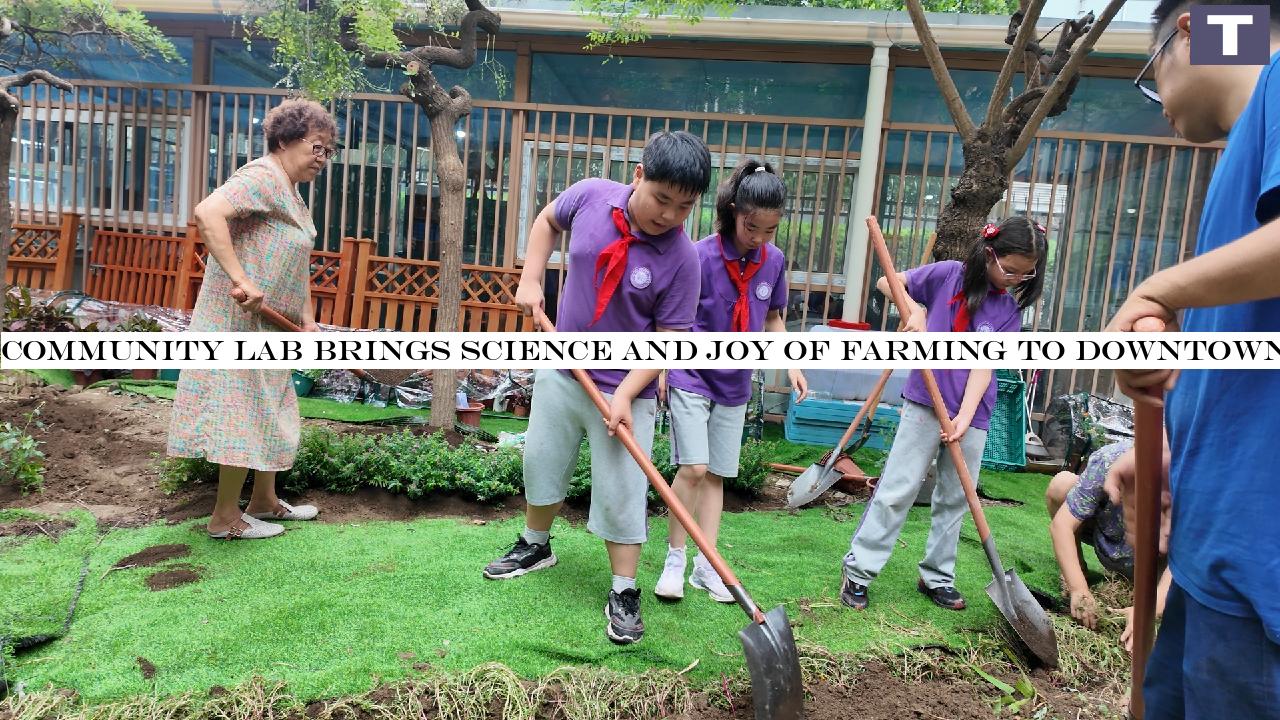
A pioneering community laboratory dedicated to cultivating fresh vegetables by recycling kitchen waste opened in downtown Beijing just days ahead of the Central Urban Work Conference being held in the Chinese capital from July 14 to 15.The initiative aligns with the conference's vision of building innovative, livable, attractive, resilient, civilized, and smart modern cities that cater to the people's needs.The community lab offers residents more than just the ability to grow their own food.
According to Zhang Xue, one of the project's key initiators, the innovation lab also serves as an educational summer camp for urban children.
It offers them a unique opportunity to learn about sustainable growth by cultivating plants with recycled food waste."Children first receive online training in farming techniques via an AI system called AI Smart Desk before getting hands-on experience at an indoor lab, and then at an outdoor community garden," Zhang explained.
"Through this process, they will not only learn about the science of farming but also the green technology involved in fertilizer production."A highlight of the project is the use of kitchen waste composting equipment, an eco-friendly system that processes various types of food scraps – such as leftover meals, vegetable peel and roots – into organic fertilizer through fermentation.Zhang Xue recalled her inspiration for the project came from an online search about Cao Yuan, a young scientist from Generation Z whose mother built a small lab at home, nurturing his interest in science from an early age.
Now a renowned expert in graphene research, Cao Yuan has attracted global attention."Cao Yuan's story was thought-provoking, but not every urban household can afford to build a lab at home," remarked Zhang.
"That's why I thought about using idle spaces within the community to create opportunities for children to develop a wider interest in science."The Central Urban Work Conference has emphasized the importance of tailoring urban development strategies to local conditions and providing categorized guidance.
By combining agriculture with green technology, the community lab is hoped to contribute to high-quality urban development.

 11
11







